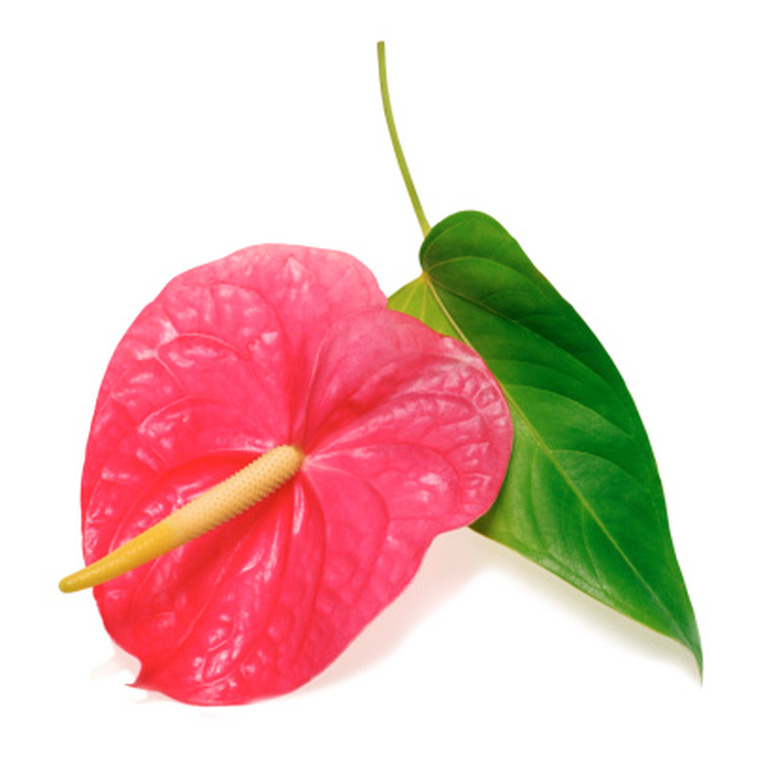Uses For Anthurium
The anthurium (Anthurium andreanum and Anthurium scherzerianum) is also called the "flamingo flower" and the "boyflower." It is a tropical plant that originated in the New World jungles of Ecuador and Colombia. Commercially it has spread to Hawaii as a market crop for flower growers, and Pahoa, on the Big Island of Hawaii, bills itself as "the anthurium capital of the world." The plant has broad, flat leaves and produces a heart-shaped spathe that passes for a blossom. Because of its shape and texture, this flower has been viewed by some as almost obscene, suggesting the human female genitalia.
Cut Flowers
Cut Flowers
Hybrid anthuriums are a popular addition to floral arrangements for their exotic forms and wide range of colors from white to pale green to bright red and many shades of pink and purple, with spots, speckles and splashes. A single specimen in a simple bud vase can last as long as three weeks, sometimes causing it to be mistaken for plastic.
Houseplants
Houseplants
As true tropicals, anthuriums can be grown reliably outdoors in Hardiness Zones 11 and 12. Apart from Hawaii and Puerto Rico, tropical conditions are found in the extreme south portions of Texas and Florida. In the rest of the country they can make spectacular houseplants, as long as they are not exposed to direct sunlight and their soil is kept constantly moist.
Folk Medicine
Folk Medicine
In a New York Times article from 1992, Hortense Robinson, a midwife and healer from Belize, reports the use of anthurium in steam for the discomforts of arthritis and rheumatism. "You cut up the leaves and boil it in a pot and have the person sit over it in a chair with a blanket. The person sweats and the medicinal properties enter the body through the open pores." She also indicates it to be useful as a poultice for muscle aches and cramps. "You take the leaf and wrap it around your neck or your back and at the end of the day, just peel it off."
Warnings
Warnings
The anthurium is listed in the University of Florida's "Guide to the Poisonous and Irritant Plants of Florida." All parts of the plant contain calcium oxalate crystals that are highly irritating to the skin and soft tissues. Another popular tropical houseplant, Dieffenbachia, contains the same crystals and is known as "dumb cane" because if you get it in your mouth, it can cause such severe swelling and pain in the mouth and throat that you cannot speak. Other houseplants are actually poisonous, and all of them should be kept out of the reach of young children and pets.
